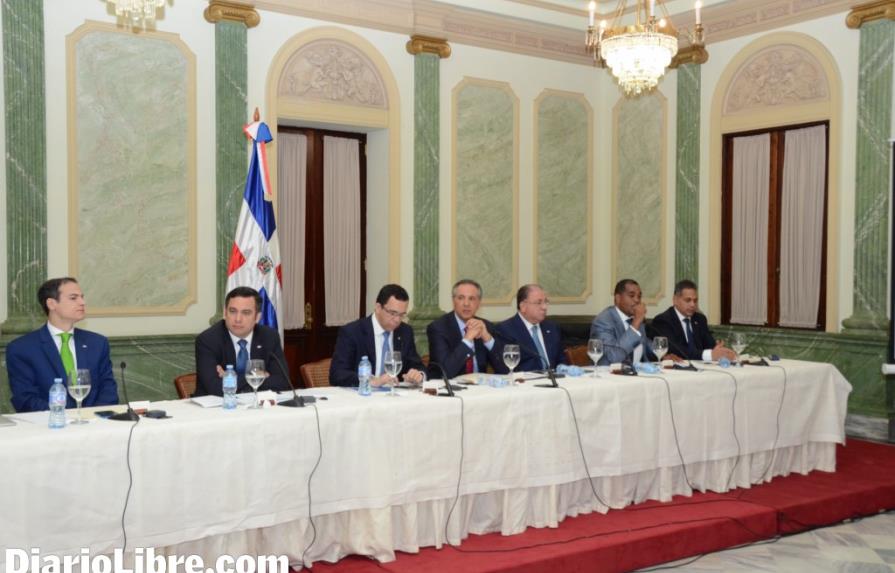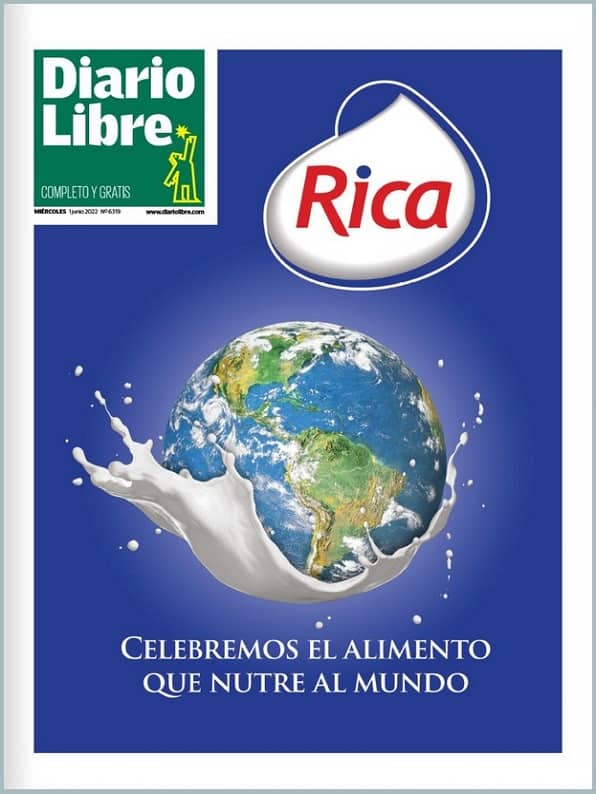Dominican Republic government explains its position to diplomats
They report that 53,000 foreigners already have a legal immigration status in the Dominican Republic

SANTO DOMINGO. Yesterday, the Dominican government presented to the diplomats from Europe, Asia, North America, Africa, Latin America and international agencies the process of the National Plan of Normalization of Foreigners with up-to-date statistics, and the plans for deportation, while at the same time they began an information campaign through the electronic media.
During a four hour session, the Chancellor of the Republic, Andres Navarro, together with the ministers of the Presidency, José Ramon Peralta; of the Interior and Police, José Ramon Fadul; the director of Migration and others, explained the details of what the country has done until now on the issue of immigration.
They worked in two groups; first, they offered explanations to the diplomats of Europe, the Middle East, Asia, North America and Asia and later on to the representatives of the Latin American countries which constitute the Community of Latin American States and the Caribbean (CELAC).
Among the ambassadors who attended the meeting at the Presidential Palace where those of Great Britain, France, Switzerland, Spain, the Netherlands, Turkey, Germany, Italy, the United States, Taiwan, Korea, Japan, Morocco, Israel, Qatar, the Apostolic Nuncio and the Charge d'Affaire of Canada.
Also taking part were the representatives in the country from the United Nations Development Program (UNDP), the Organization of American States (OAS), and the International Organization for Migration (IOM).
In the same manner, the ambassadors from Mexico, Belize, Honduras, Peru, Guatemala, Nicaragua, Panama, El Salvador, Costa Rica, Colombia, Venezuela, Chile, Peru, Paraguay, Argentina, Haiti, Cuba, Argentina and Brazil also received explanations.
Statistics
Among the information offered is the fact that 300,000 persons registered in the Plan during the 18 month duration and that an immigration status was recognized for 53,000 of group A and 8975 of group B.
Chancellor Navarro explained that the Dominican government would continue reporting to the world about its immigration policies and on Saturday he would head a meeting in Panama with the Dominican ambassadors in Central and South America.
He reported that the Dominican diplomats, in turn, would convene all of the ambassadors in the countries where they are located in order to explain to them the results of the Normalization Plan and the process of deportations of undocumented foreigners.
He said that later he would travel to Washington in order to do the same and later on to Geneva where he will meet with all of the Dominican ambassadors in Europe, Asia and Africa in order to carry out the same exercise and that they in turn would do the same in their respective countries.
"The Question is that Dominican society should be totally confident and sure that what the Dominican government is doing, not only in our own territory in terms of immigration practice, but also in terms of informing the rest of the world," he said.
For his part, the Administrative Minister of the Presidency, José Ramon Peralta, said that the Normalization Plan has been recognized by all of the governments and that the Dominican government wants it to be known by all of the population, and because of this it is carrying out a broad campaign. He explained that there are NGOs and other organizations who do not know of the extend of the plan.
Reactions:
The Haitian Ambassador, Daniel Supplice, met with President Danilo Medina, but did not wish to speak alleging that he would convene a press conference next Wednesday.
On the other hand, the Spanish ambassador, Jaime Lacadena, said that his government supports the country in its process of normalization of foreigners. Instead of criticizing, he praised the country and gave support: "What I want is to invite all those persons who desire to know a country with history, a country with culture, a country with countless natural beauty and to come and visit the Dominican Republic."
He should retract!
Tourist impresario Frank Rainieri, said, as he left the meeting, that in the country there is an awareness that the Plan has been very transparent. He indicated that people who were wrong, such as the Mayor of New York City, Bill De Blasio, should retract their statements.
A communication campaign
While they were offering information to the diplomatic missions in the country, the Directorate of Communication began a campaign with testimony from Haitians benefited with immigrant status who reside in the Dominican Republic. Roberto Rodriguez Marchena said that they are trying to present useful stories in order to have people appreciate the decision by the Dominican people and by their government that corrects a situation which shouted for its solution. The stories are from students, professional people, farm and construction workers, street vendors, who arrived or were born in our country. The first story is titled: "Now I have my papers," and tells the story of Angelot Dieudonne Rodriguez, a young man of Haitian extraction who has managed to insert himself in different national sectors. "What the Dominicans want is to install order in a situation which we have had for decades," he said as he offered a press conference in the Orlando Martinez Hall of the Presidential Palace. The government will continue with its campaign in order to tell the truth and regarding this, Rodriguez Marchena said that "the government has never lied" nor would it do so with respect to the National Plan of Normalization of Foreigners and its immigration policy.
During a four hour session, the Chancellor of the Republic, Andres Navarro, together with the ministers of the Presidency, José Ramon Peralta; of the Interior and Police, José Ramon Fadul; the director of Migration and others, explained the details of what the country has done until now on the issue of immigration.
They worked in two groups; first, they offered explanations to the diplomats of Europe, the Middle East, Asia, North America and Asia and later on to the representatives of the Latin American countries which constitute the Community of Latin American States and the Caribbean (CELAC).
Among the ambassadors who attended the meeting at the Presidential Palace where those of Great Britain, France, Switzerland, Spain, the Netherlands, Turkey, Germany, Italy, the United States, Taiwan, Korea, Japan, Morocco, Israel, Qatar, the Apostolic Nuncio and the Charge d'Affaire of Canada.
Also taking part were the representatives in the country from the United Nations Development Program (UNDP), the Organization of American States (OAS), and the International Organization for Migration (IOM).
In the same manner, the ambassadors from Mexico, Belize, Honduras, Peru, Guatemala, Nicaragua, Panama, El Salvador, Costa Rica, Colombia, Venezuela, Chile, Peru, Paraguay, Argentina, Haiti, Cuba, Argentina and Brazil also received explanations.
Statistics
Among the information offered is the fact that 300,000 persons registered in the Plan during the 18 month duration and that an immigration status was recognized for 53,000 of group A and 8975 of group B.
Chancellor Navarro explained that the Dominican government would continue reporting to the world about its immigration policies and on Saturday he would head a meeting in Panama with the Dominican ambassadors in Central and South America.
He reported that the Dominican diplomats, in turn, would convene all of the ambassadors in the countries where they are located in order to explain to them the results of the Normalization Plan and the process of deportations of undocumented foreigners.
He said that later he would travel to Washington in order to do the same and later on to Geneva where he will meet with all of the Dominican ambassadors in Europe, Asia and Africa in order to carry out the same exercise and that they in turn would do the same in their respective countries.
"The Question is that Dominican society should be totally confident and sure that what the Dominican government is doing, not only in our own territory in terms of immigration practice, but also in terms of informing the rest of the world," he said.
For his part, the Administrative Minister of the Presidency, José Ramon Peralta, said that the Normalization Plan has been recognized by all of the governments and that the Dominican government wants it to be known by all of the population, and because of this it is carrying out a broad campaign. He explained that there are NGOs and other organizations who do not know of the extend of the plan.
Reactions:
The Haitian Ambassador, Daniel Supplice, met with President Danilo Medina, but did not wish to speak alleging that he would convene a press conference next Wednesday.
On the other hand, the Spanish ambassador, Jaime Lacadena, said that his government supports the country in its process of normalization of foreigners. Instead of criticizing, he praised the country and gave support: "What I want is to invite all those persons who desire to know a country with history, a country with culture, a country with countless natural beauty and to come and visit the Dominican Republic."
He should retract!
Tourist impresario Frank Rainieri, said, as he left the meeting, that in the country there is an awareness that the Plan has been very transparent. He indicated that people who were wrong, such as the Mayor of New York City, Bill De Blasio, should retract their statements.
A communication campaign
While they were offering information to the diplomatic missions in the country, the Directorate of Communication began a campaign with testimony from Haitians benefited with immigrant status who reside in the Dominican Republic. Roberto Rodriguez Marchena said that they are trying to present useful stories in order to have people appreciate the decision by the Dominican people and by their government that corrects a situation which shouted for its solution. The stories are from students, professional people, farm and construction workers, street vendors, who arrived or were born in our country. The first story is titled: "Now I have my papers," and tells the story of Angelot Dieudonne Rodriguez, a young man of Haitian extraction who has managed to insert himself in different national sectors. "What the Dominicans want is to install order in a situation which we have had for decades," he said as he offered a press conference in the Orlando Martinez Hall of the Presidential Palace. The government will continue with its campaign in order to tell the truth and regarding this, Rodriguez Marchena said that "the government has never lied" nor would it do so with respect to the National Plan of Normalization of Foreigners and its immigration policy.


 Diario Libre
Diario Libre
 Diario Libre
Diario Libre